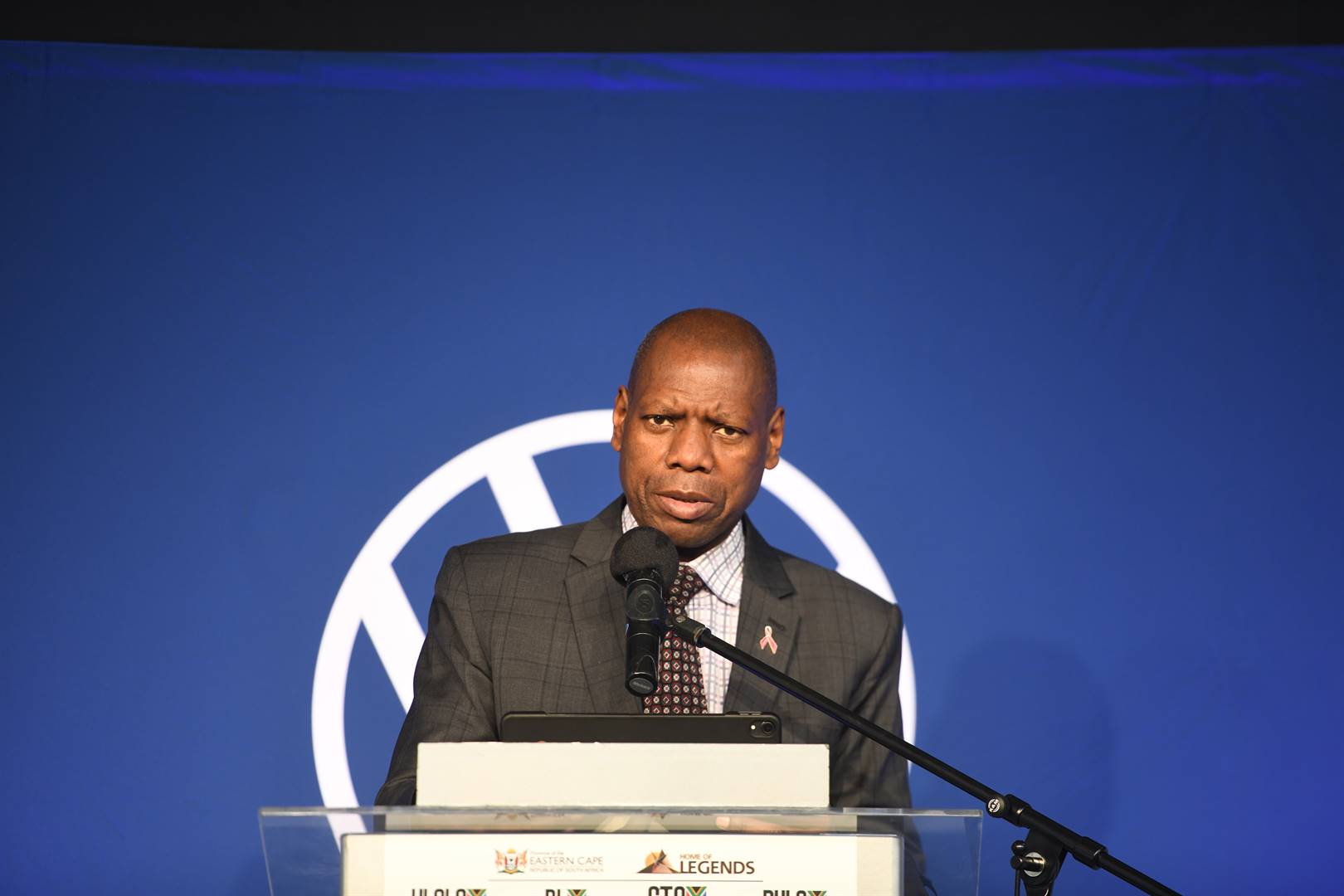


Health Minister Zweli Mkhize at the launch of a field hospital for Covid-19 patients in Port Elizabeth.
Lulama Zenzile, Gallo Images
- Health Minister Zweli Mkhize urged provinces to report deaths according to WHO protocols.
- The SAMRC reported an estimated 17 000 excess deaths between mid-May and mid-July.
- Mkhize said the Covid-19 pandemic illustrated how important data and information are in managing health decisions.
Health Minister Zweli Mkhize urged all provinces to report deaths using the guidelines of the World Health Organisation’s (WHO) protocols to avoid the “confusing and concerning” perception that there is under-reporting of Covid-19 related fatalities.
Mkhize presented his department’s adjusted budget to a mini plenary of the National Assembly in a virtual sitting on Thursday afternoon.
On Wednesday, the South African Medical Research Council (SAMRC) reported that an estimated 17 000 more deaths than expected, or “excess deaths”, occurred in the country since May this year.
The SAMRC found there were 59% more deaths from natural causes than would have been expected based on historical data, meaning the data shows a pattern that is different from those predicted by historical trends.
READ | Medical Research Council reports estimated 17 000 excess deaths during Covid-19 outbreak
News24 reported on Thursday that Professor Debbie Bradshaw, a co-author of the report, said the “timing and geographic pattern leaves no room to question whether this is associated with the Covid-19 epidemic”.
“However, the weekly death reports have revealed a huge discrepancy between the country’s confirmed Covid-19 deaths and the number of excess natural deaths,” she added.
Mkhize addressed the matter in his speech, saying the SAMRC has conducted a study on excess deaths in the context of Covid-19.
“Their findings reveal that there may be additional deaths which are unaccounted for, based on the modelling which they have done.
“Various possible explanations are given for this phenomenon, such as people dying from Covid-19 before they get to the healthcare facility, or people dying from Covid-19 but the death not being reported as such, and/or people dying from non-Covid-19 conditions because the health services have been reorientated to Covid-19”.
Uncertainty
He said it has also been acknowledged that there is uncertainty about the exact number of excess deaths in these circumstances.
“However, in comparison to other countries, as at 18 July 2020, South Africa recorded 1.4% of deaths, which is comparable to countries like India at 2.5 and Russia at 1.5, but significantly lower than countries like the UK at 15.4%, Spain at 10.9% and the US at 3.88. We will continue to analyse this trend.
“We have urged all provinces to report deaths as guided by the WHO protocols, so that they can be recorded and reported as soon as the information becomes available, to avoid the backlog as we have seen in the Eastern Cape.
“This may create a confusing and concerning perception that there is under-reporting of Covid-19 deaths. We will continue to monitor all provinces to ensure that the reporting of Covid-19 related deaths is timeously done”.
Data
He said the Covid-19 pandemic has illustrated how important data and information are in managing health decisions.
Mkhize said worldwide there are more than 15 million confirmed Covid-19 cases and, as a country, South Africa will breach the 400 000 mark of cumulative cases by the end of the week, based on the daily average.
“We have publicly stated that the storm is upon us. This is evidenced by the surge in different provinces, namely the Western Cape, Eastern Cape and Gauteng. KwaZulu-Natal appears to be following the same trend and we are now watching the province closely,” Mkhize said.
“The reopening of the economy, which led to the movement of people in the country, has no doubt contributed to the rise in numbers”.
ALSO READ | Mkhize doubles down on keeping advice secret as scientists push for transparency
He then expressed the sentiment of most ANC speakers during the week’s speeches: “However, we are mindful that government had to grapple between protecting our citizen’s lives or their livelihoods”.
He said this has not been an easy exercise, as various sectors have different expectations based on the challenges they face.
“But we want to assure every South African that as inconvenient and uncomfortable as things may be, our intention is to do what is in the best interest of our people”.

